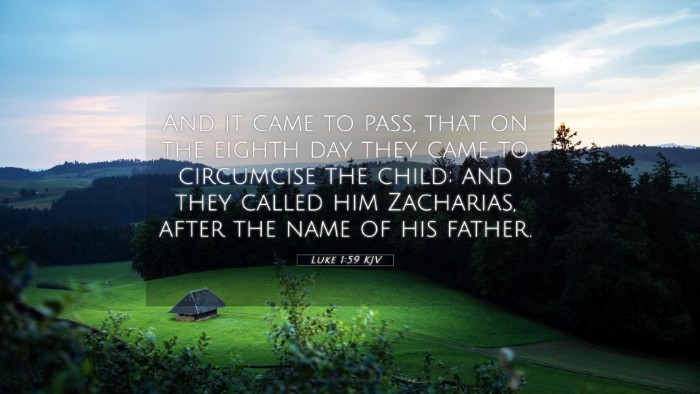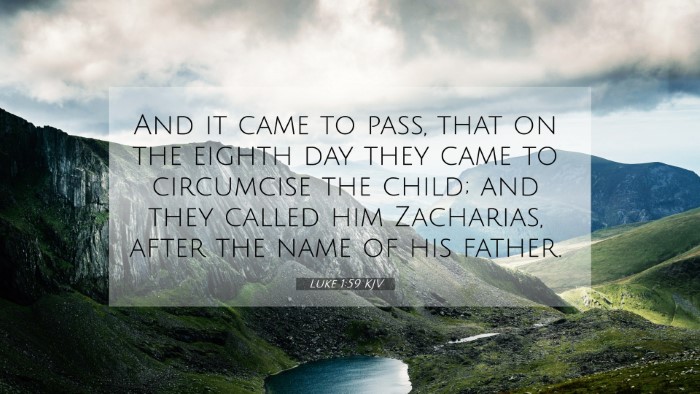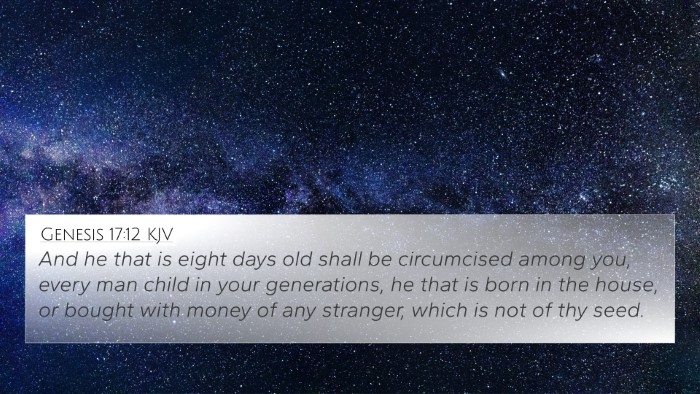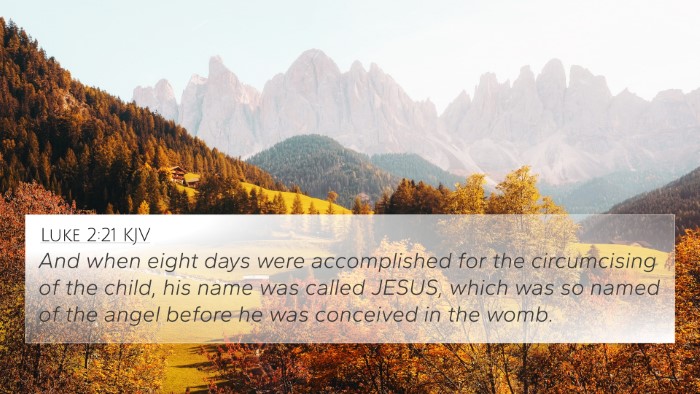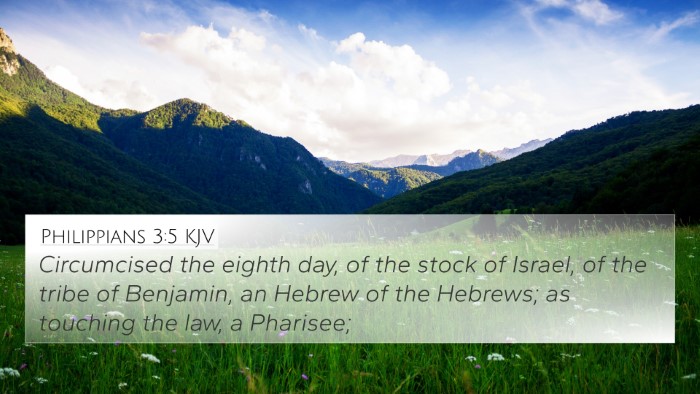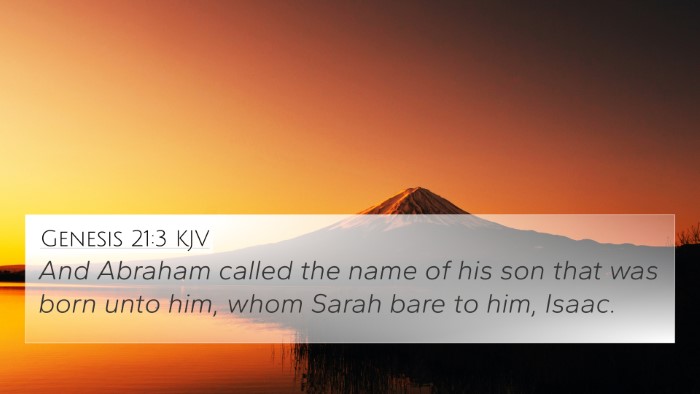Understanding Luke 1:59
Luke 1:59 states: "And it came to pass, that on the eighth day they came to circumcise the child; and they called him Zacharias, after the name of his father." This verse holds significant meaning within the context of Jewish tradition and the fulfillment of God's promises. The focus is on the event of circumcision, a crucial Jewish rite indicating the entrance of a male child into the covenant community.
Thematic Insights
This verse can be explored through various themes that connect it with different parts of scripture.
-
Covenant Identity: Circumcision marks the covenantal identity of Israel, emphasizing God's commitment to His people, referencing Genesis 17:10-14, where God establishes this sign with Abraham.
-
Faith and Obedience: The naming of the child as "Zacharias" demonstrates adherence to tradition and family lineage, linking to Numbers 6:2 where obedience to God's laws is highlighted.
-
Establishing Identity: The act of naming reflects God’s role in establishing identity, similar to Matthew 1:21, where the angel instructs Joseph to name Jesus, for He will save His people.
-
Miraculous Birth: The birth of John the Baptist symbolizes the fulfillment of God's promise, relating closely to Isaiah 40:3 which foretells the coming of a messenger preparing the way for the Lord.
Cross-Referencing Biblical Texts
When studying Luke 1:59, it's fruitful to consider various cross-references that provide deeper insight into the text:
- Genesis 21:4 - Abraham circumcising Isaac, paralleling the practice in Jewish tradition.
- Luke 2:21 - Further details on Jesus’ circumcision, providing continuity in the narrative of covenantal practices.
- Acts 7:8 - Highlights the covenant of circumcision made with Abraham, establishing continuity in God's promises.
- Romans 4:11 - Discusses circumcision as a sign of the righteousness Abraham had by faith before he was circumcised.
- Philippians 3:3 - The New Testament view on circumcision, contrasting the Jewish practices with the faith in Christ.
- John 1:6-7 - Points to John the Baptist's role as a witness, connecting him to the prophetic tradition.
- Hebrews 11:17-19 - Reflects on Abraham’s faith demonstrated through the covenant of circumcision.
Interpretative Insights
Public domain commentaries provide extensive interpretations of this verse:
-
Matthew Henry: Highlights the significance of the child's naming and its implications on family heritage and the divine plan. The naming reflects God's power manifested in the life of Zacharias and his wife Elizabeth.
-
Albert Barnes: Elaborates on the necessity of obedience to God's direct commands regarding naming and the ceremonial practices, reflecting on the importance of maintaining traditions within faith.
-
Adam Clarke: Focused on the significance of the eighth day for circumcision and what it symbolizes in terms of new beginnings and the fulfillment of God's promise to Israel.
Connections with Other Bible Verses
Luke 1:59 also serves as an integral part of a larger narrative, connecting with numerous other scripture passages:
- Luke 1:13: God's announcement of John's birth, emphasizing the divine intervention in Zacharias and Elizabeth's life.
- Malachi 3:1: Prophesies the coming of a messenger, linking John’s role as a precursor to the Messiah.
- Isaiah 49:1: Discusses God's call to the nations, foreshadowing John’s role in preparing others for Jesus’ ministry.
Application and Reflection
This verse encourages believers to reflect on the significance of naming and identity in God's covenant family. It challenges us to consider how our own identities are shaped by God's promises and the traditions we uphold in faith.
Conclusion
In summary, Luke 1:59 is a pivotal verse that not only highlights essential Jewish traditions but also unveils the unfolding narrative of God's redemptive plan. Cross-referencing this verse with others enriches our understanding of its theological implications, making it a vital study for those seeking to understand the connections between Bible verses and the broader narrative of Scripture.

